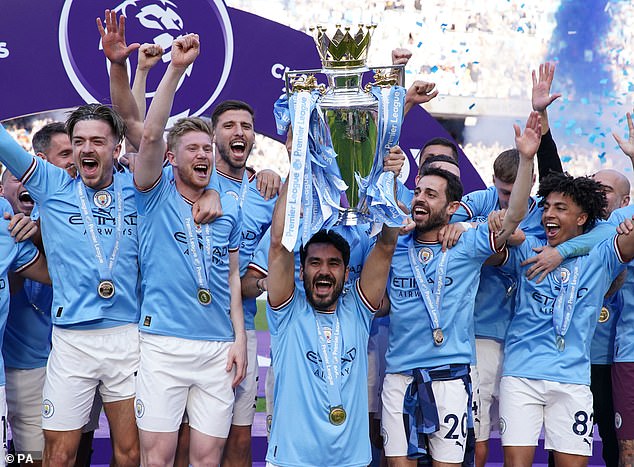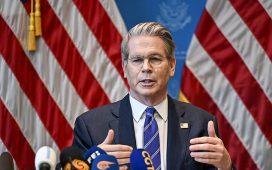- The regulator will have powers to assess suitability of the owners of clubs
- It will make owners conform to ‘trade and policy objectives of HM Government’
- Risk is that over-zealous regulation might work against the desire of the fans
At a recent charity lunch I was seated next to the smart proprietor of a Premier League club punching above its weight on limited resources. He was not a happy man.
Financial ownership such as private equity was inevitable. RedBird has an interest in Liverpool, Clearlake Capital in Chelsea and on the Continent CVC is working with La Liga in Spain.
Management of sporting enterprises is beset by amateurism. In an age of franchising, sports broadcasting rights, streaming and analytics (including AI) new professional ownership structures made sense. In his view sovereign states, with unlimited financial resources, constituted unfair competition.
Manchester City, owned by Abu Dhabi, has run rings around the football authorities with impunity. The ownership of Newcastle United by Saudi Arabia’s wealth fund should never have been allowed.
The unveiling by Culture Secretary Lucy Frazer of an Independent Football Regulator (IFR) has its merits. The Premier League may be one of Britain’s proudest exports – its output is in huge demand globally – but governance is flaccid. The UK doesn’t need more quangos. But when the private sector fails to self-regulate, outside surveillance is necessary.

Lucrative: The Premier League – which has £5.5billion of annual income to protect – has shown some bite with its financial fair play rules
The Premier League – which has £5.5billion of annual income to protect – has shown some bite with its financial fair play rules. Yet club owners might ask why it has come down so hard on under-performing clubs such as Everton, Nottingham Forest and Leicester. In contrast Manchester City, with 115 alleged breaches of financial rules, so far remains unscathed. The Gulf state-owned club has been allowed to scoop up players and trophies with impunity.
Whether the IFR will ever have sufficient powers, authority and bloody-mindedness to deal with this is questionable.
The UK has endless enforcers such as Ofwat, Ofgem and Ofcom. But their effectiveness, in controlling ownership, managing governance and keeping the consumer at the core of what they do has been limited. The nation’s rivers and beaches are polluted with sewage discharges, financial cowboys became energy suppliers and the BBC the undeclared voice of Hamas.
Football needs to be mended. The regulator will have powers to assess suitability of the owners of clubs. It will be able to access HMRC data, records from the National Crime Agency and make sure owners conform to ‘the trade and policy objectives of HM Government.’
That sounds sensible and doubtless direct Russian or Chinese ownership would be proscribed. Given this nation’s great economic interest in the Gulf, it is hard to think the IFR would be robust enough to unravel the ownership of City or Newcastle.
Another area of conflict between the IFR and the Premier League is likely to be the trickle-down economics. Ideally, the super-rich Premier league, with valuable broadcast rights and unexplored streaming opportunities, would share a proportion of its wealth with the Football League.
There is a standoff and ideally the IFR would act as the economic referee. It might also have powers to intervene at lower division clubs such as Reading when ownership goes off the rails. The risk, however, is that over-zealous regulation might work against the desire of the fans. The pressure to create a closed system, based on the American model of the NFL or baseball, and escape the regulator could become an imperative.
If you thought the disparaged JP Morgan-financed European Super League is dead and buried, you may need to think again.










